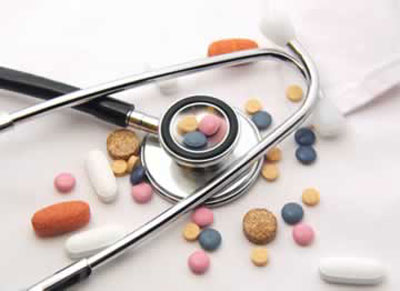Todd: OK, now Jeff, I've know you for a long time. You are a very resourceful person. You always have these crazy jobs, and recently you had a job at a hospital, but you weren't a doctor. Could you please describe your job?
托德:杰夫,我已经认识你很长时间了。你是一个足智多谋的人。你做的工作都很疯狂,最近你在一家医院找了份工作,不过你并不是医生。你能描述一下你的工作吗?
Jeff: Todd, it was a pharmaceutical company clinic that I was working at and it was, I was a guinea pig, a medical guinea pig which means that a new drug that is being introduced into a foreign country must be tested on an individual before it can be sold on the open market so I'm a guinea pig. It's tested on me, and once the results come back and everything is OK then it is sold to the public.
杰夫:托德,我工作的地方是一家制药公司的诊所,我是那里的实验对象,一种引入外国的新药在公开市场销售之前要先在人体身上进行试验,所以我就是那个实验对象。他们会在我身上进行试验,如果结果显示一切正常,那这种药就可以公开销售了。
Todd: So when you say you were a guinea pig, like what did they do to you everyday, or what was your routine?
托德:你说你是实验对象,那他们每天都在你身上进行什么试验,或者说你每天要做什么?
Jeff: Well let me qualify that it's not good work. You can't really make a living at it and bring up children but it pays very well,..., very very well. It's very lucrative so that's one of the enticements for doing this kind of work but it's just, your day is you get up are administered the drug, for example a flu medicine and then you remain in the clinic all day long and you read and write. You have the freedom to do whatever you like, but it's very monitored so you can't leave the clinic but you can do whatever you like to do in the clinic.
杰夫:我要说明一下,这并不是份好工作。不能靠这份工作谋生,也不能靠这份工作抚养孩子,不过其实薪水还算不错,非常不错。这是一份非常赚钱的工作,这是这份工作吸引人的原因之一,早上起床以后服下那种新药,假设是治疗流感的药物吧,然后你要在诊所里呆一整天的时间,可以看书写东西之类的。你可以自由地做你喜欢的事情,但是因为他们要对你进行监测,所以你不能离开诊所,不过可以在诊所里做任何你想做的事情。
Todd: OK, so you're in the clinic and what would a daily routine be? What do you do? Do you get up and exercise or what?
托德:好,那你在诊所的时候每天都做些什么?你会做什么事情?你起来以后去锻炼还是做别的事情?
Jeff: A daily routine varies between individuals, so with me there were twelve on the study, twelve young men, and some of the guys would get up late and sleep until noon. Well, they would get up for breakfast. You have to have breakfast at seven a.m. and what you eat is monitored and then you eat lunch at noon and you eat your dinner at six. In between a lot of the guys read or watched movies or played video games. I used my time by doing yoga or reading, doing work, studying Japanese. I tried to use my time a little bit constructively, whereas some of the other guys sort of just used it as a vacation.
杰夫:每个人每天做的事情都不同,算上我,进行试验的一共有12个人,12个年轻男性,有些人起得很晚,他们会一直睡到中午。不过他们会先起来吃早餐。诊所规定要在7点吃早餐,而且吃的东西也处于监测中,午饭时间是中午12点,晚饭时间是晚上6点。其余时间有许多人会看书、看电影或玩电子游戏。通常我会练瑜珈、看书、做些其他的工作、学习日语。我试图更有效地利用我在诊所的时间,而有些人把这个时间当成度假。
Todd: OK, so you're in this clinic for a week or whatever. So when you get out from being sequestered in there, what is the first thing you do?
托德:你在诊所里呆了一周。结束这种隐居生活以后,你做的第一件事是什么?
Jeff: The first thing that I did when I got out was..no, OK, no....I can't say that. The second thing I did when I got out of the clinic was have a nice meal because the food in the clinic wasn't very good so, the second thing was that I had a really good meal, a nice meal of food.
杰夫:我离开诊所以后做的第一件事是……不行,我不能说。离开诊所以后我做的第二件事是吃了顿好吃的,因为诊所里的食物不是太好吃,所以我做的第二件事就是去吃了顿美食,一顿大餐。
Todd: All right, Jeff. Thank you for sharing that.
托德:好,杰夫。非常谢谢你和我们分享这段经历。

译文属可可原创,仅供学习交流使用,未经许可请勿转载


